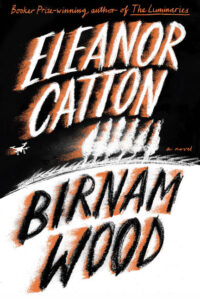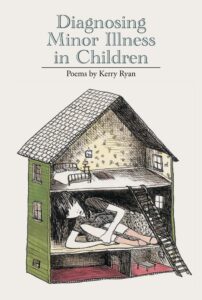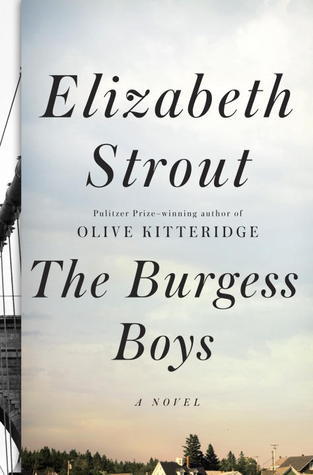May 1, 2023
Harper Valley PTA
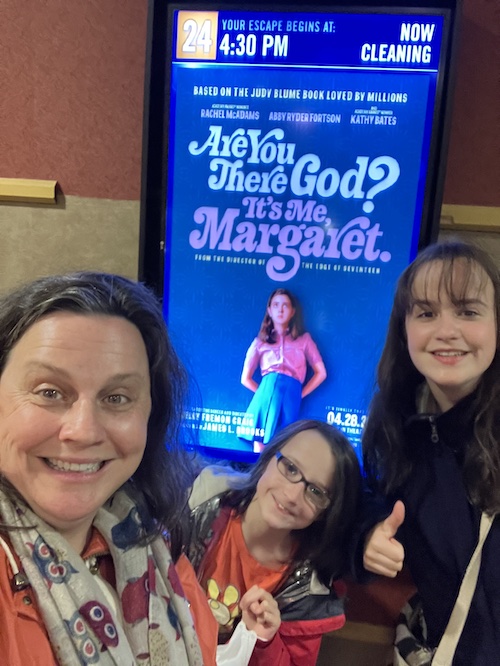
I had but a single reservation about the film version of Are You There God? It’s Me, Margaret, which I saw at the cinema yesterday with my daughters whose companionship for such an occasion was such a treat for me. They’ve both read (or reread) the book in the last few weeks, and were as enthusiastic about the movie as I was. We loved it, and to all be able to experience and love something together is a pleasure I appreciate so very much.
But. But. But.
And this is personal. I’ve spent the last few weeks overwhelmed by several things, not the least of which is a fundraiser for my child’s school that has ended up on my plate mostly because I was the only person who reluctantly failed to refuse it. Because I cannot bear to leave a silence or vacuum unfilled. Because while succeeding in leaving such a silence or vacuum unfilled is an act of liberation (which I’ve even managed to pull off once or twice) it only means that someone else is going to have to do it, and that’s not really liberating at all.
It’s a quandary, and I’ve come full circle, and then some. When my children started elementary school (ten years ago!), I swore off volunteering altogether…because I know myself, how it’s only ever all or nothing, and um, I think I was also still on the board of their playschool at the time. And I was also bowled over by the requests for volunteers and funds (and usually both) at my children’s school. It was too much, it was inequitable, they had galas to raise money for the galas! Okay, that last point is an exaggeration, but I put it in my first novel, Mitzi Bytes, whose protagonist was resolutely anti-school volunteering. She values her time too much to go in for any of that nonsense—and oh, I wish I was her with every fibre of my being. The way she really doesn’t care what anybody thinks or about what she should be doing. She’s not doing it, and it’s simple. What I would give for that kind of clarity.
But of course, I care what people think a lot, too much, and I overthink everything about how to be a good citizen, and a good community member (and how to be “good” in general, which my therapist and I will be continuing to unpack for the foreseeable future), and so when my book was coming out, I eagerly signed up for the school council just so now one would think that the book was autobiographical, and chaired that council for two years, taking on duties to such a ridiculous extent that I was sitting in for the secretary sometimes when I was chairing, taking my own minutes, which is nuts. I also thought a lot about the role of fundraising in public education, registering my discomfort, but by this point understanding how school staff count on these funds, which are raised entirely on the backs of moms whose labour is discounted by assholes like my protagonist and other like-minded folks (who were sometimes me).
I managed to step away from school volunteering eventually, which maybe is the way it should be—we do what we can, take a break, come back again (or not). These days I volunteer twice a month at pizza lunch, which I really like doing, and it’s nicely low key. I’m not on school council anymore, because I did my time. It’s other people’s turn—and that’s a wonderful thing to realize, by the way, when we’re feeling all disgruntled, put-upon, why do I have to do everything? When I stopped showing up, someone else took my place, which is also (sort of) to say that I gave someone else a chance to take my place (as opposed to taking my own minutes; all or nothing, remember?).
But then my elder daughter entered middle school, and it’s very small school, oh no, I saw it coming, really. This spring fundraiser that hadn’t been produced since 2019—who was going to do it. It was going to be me. It was always going to be me, even though I’m not really that good at producing events, and I do so always in the most corner-cutting, simple way possible because I’d rather get it done than do it well. Sigh.
And, truthfully, it’s not been so bad, and I’ve only cried about it once, and if the event manages to be a success (it’s the day after tomorrow), which is to say even approaches reaching our fundraising goal, I’ll be glad I did it. Even though I’ve been bothered that more people in our school community haven’t been pitching in, that such a small number of parents (moms!) are usually the ones who do everything, and so many others are content just to not be involved, to ignore my emails, to not respond to requests for help, content to let it all be somebody else’s burden, which is to say mine.
I think what bothers me so much about the situation is not just that people aren’t helping, but that their failures to help makes me feel embarrassed, ashamed. Sending out these annoying emails week after week, all peppy, and knowing such messages must be so obnoxious to receive, so I feel kind of pathetic, like a loser. And that it seems like I have nothing better to do with my time than this—what does that say about me? About who I am and what I do?
(Like I said, this is personal.)
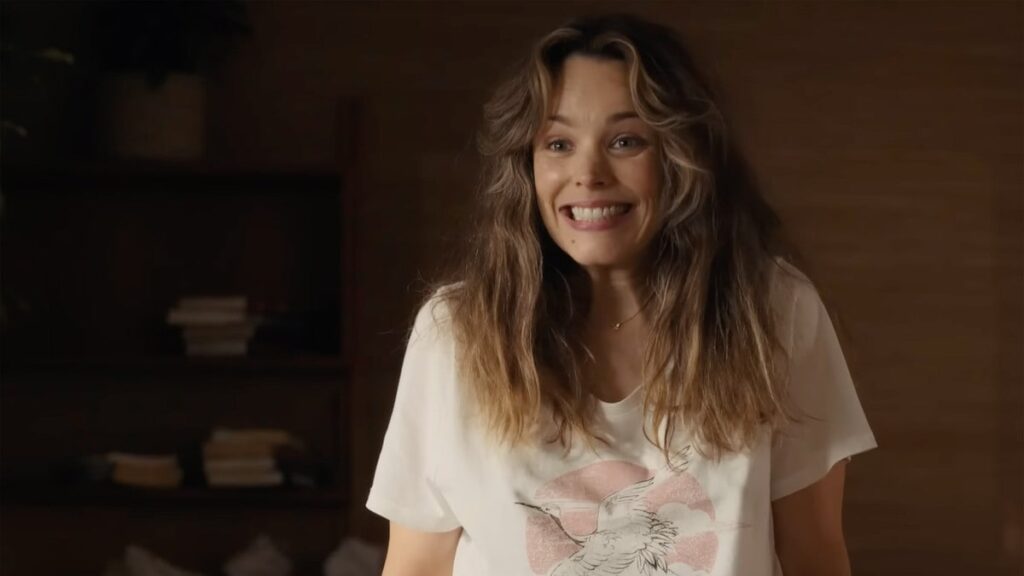
So yes, I was conflicted about the final arc of Rachel McAdams’ character in Are You There…, a bohemian mom who moves to the suburbs and leaps right into the school community because she wants to do the right thing and because for the first time in her life she has the time to, but of course her intelligence and talents are wasted there. The company is terrible, shallow, and the labour itself is totally pointless—she’s charged with cutting out thousands of thousands of felt stars that ultimately end up on the garbage. By the end of the film, she has found better and fulfilling things do with her time, and when she’s called on again to volunteer, she declines, declaring “Because I don’t want to,” and people in the cinema cheered, and I get that, but I also hate that.
In particular during this particular week, as I find myself (metaphorically) cutting out my own felt stars, as I send just one more cheery email urging families to please sign up for the bake sale.
What do we do with this? What do we do with the vital labour of mothers that’s necessity to make up for a public education system that has been hopelessly underfunded for nearly thirty years? What do we do with the fact that it’s often other mothers who are most derisive about this labour? And what do we do that none of this ever has anything to do with the dads at all? (And we can continue—this is about class, of course. About families with the time and resources to commit to school fundraising, which many school communities can’t count on at all.)
These are the circles I’ve been thinking in for almost a decade.
But today I came to some kind of answer, or the beginning of one—at least in my own mind. First, we need schools better funded. We need fathers to be as invested as mothers are in what happens at school, which means less work for everyone. And another part of the answer, which I’ve sort of been onto already, by virtue of being lazy, is my corner cutting approach to things all along. I’m not cutting out any fucking felt stars, is what I mean. This kind of labour is essential, so use it smartly, use it well. Value people’s time. Keep meetings within limits. Respect people’s boundaries. Appreciate people’s talents and skills. Don’t take any of this for granted. And if everyone does a little, that means no one has to do it all.
April 26, 2023
AFAF Mood Board: Part Two
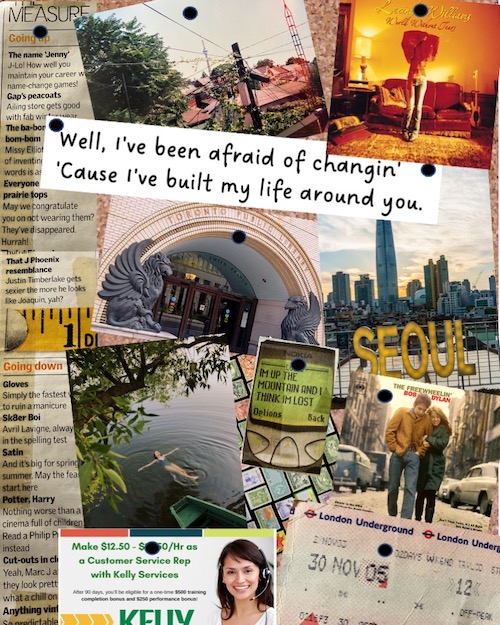
Mood Board 2 for Asking for a Friend, my new novel coming from Doubleday Canada on September 5! These images are inspired by the novel’s third and fourth chapters in which Jess and Clara begin to make their respective ways in the world after having lived a life entwined throughout their early 20s. How are they supposed to be themselves without each other?
Asking for a Friend is available for pre-order from your favourite bookseller!
April 25, 2023
Gleanings
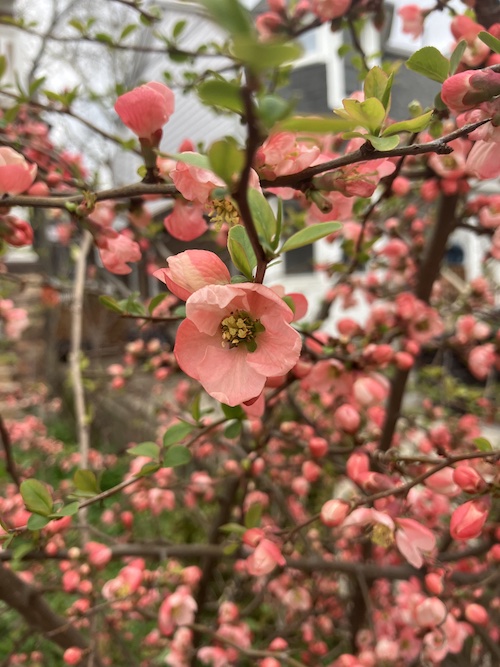
- I’ve previously shared with you that grief is my roommate, inescapable even when I’d rather live alone. In that moment in my basement though, I realized that my emotional house-mate had, in recent months, quietly moved to the lower level.
- The largess of Andrew Carnegie allowed for the construction of five libraries here in Essex County, and the one in Windsor was the first Carnegie Public Library in Canada.
- But this book, and Sashi’s brothers and friends who kept disappearing from the village, brought back not only the memory of that young man who disappeared from our office, but also the realization how war is never just black and white, never just good versus evil, never only the one narrative we hear. Because we never truly know how the everyday lives of people are forever changed and often erased.
- From author Deryn Collier comes a smart, charming postwar historical novel based on the true story of an aspiring writer who dares to dream big.
- For me, I decided to make a deal with the world. The deal is that I agree to believe everyone is trying their best, and I hope that they will believe I’m trying my best. No conditions. That’s the deal.
- Burr falls squarely in the tradition of The Southern Ontario Gothic, mining the unsettling territory where our wilder, more honest selves rub up against the veneer of suburban respectability that blankets us. It reminds me of the novels I read as a teenager just beginning to discover what literature could do, books by Margaret Atwood and Alice Munro that offered me the radical notion that the boring, bright suburban world I inhabited was as full of ghosts and desire and grief and decay as any other time and place.
- 7. I wonder if she even liked the dishes? If they ever got used? If the dress felt good on her body?
- And now I am being careful about what I wish for. Warmer days, yes, but not too hot (the ability of bees to both pollinate and to reproduce decreases in extreme heat). Nights without frost. The third planting of tomato seeds (better late than never?) growing to full size, heavy with fruit, the pans of them roasting with garlic, rosemary, quarters of onions, the beautiful mutilated world somehow surviving, surviving us.
- After much reflection, I’m now learning that the confidence, daring and joie du vivre that I felt in my Mum throughout my childhood was in part the result of a woman who didn’t compare herself, and didn’t bother too much with what others thought. She was herself, not a version she aspired to.
- Last night as I turned off lights and tucked kids into bed, I caught a whiff of lilacs. A neighbor’s lilac bush was blowing its heady perfume three doors over and two stories up, right into our windows. The evening air had grown chilly and the sky was not quite dark, so I closed the windows and drew the shades and thanked goodness for the millionth time that winter is over and that tomorrow could bring more lilac huffing.
April 24, 2023
There Was a Good Man Named Paul Revere
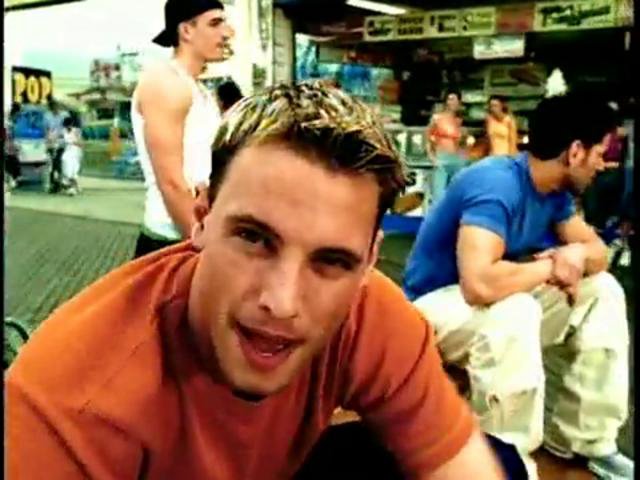
On Friday evening, a raccoon got into my kitchen. (Not for the first time; also this was not the only raccoon intruder in the neighbourhood this weekend!). And whenever I told anyone about it, they’d ask how the raccoon got in, and I would reply, “It came in the door…” And then I’d have to resist the impulse to finish off the sentence with, “I said it before/ I think I’m over you, but I’m really not sure.” Which is a problem much more rare than Toronto raccoons are, which is that I am absolutely obsessed with the song “Summer Girls,” by LFO.
And the weird thing about this is that everyone else isn’t. I don’t get it. A few years ago, back when Twitter was not a terrible place, I shared my shocking discovery that two out of the three members of LFO (aka, “The Lyte Funky Ones,” whose “Summer Girls” was pretty much a one-hit-wonder in 1999, though they tried hard to follow it up) had died of cancer. Because what kind of a statistic is that? Cancer, robbing the world of 66% of the ones who were lyte and funky, and now there is just one. The Lyte Funky ONE, and I partook in such banter with exactly TWO people, and it seemed like nobody else on Twitter cared about LFO, or even remembered the song at all.
But the lyrics to that song are wired to my brain in a way that I just can’t kick, and I don’t even want to. Which is kind of ridiculous, because the lyrics are so random and weird, but unbelievably catchy, and I just can’t help walking around the house muttering lines like, “Call you up, but what’s the use?/ I like Kevin Bacon, but I hate Footloose.”
Part of the problem is that I have two amazing daughters, and so it comes up a lot, a line like, “You’re the best girl that I ever did see.” Multiple times a day, I’m not even kidding, to which my children reply, without missing a beat, “The great Larry Bird, Jersey 33!” And HOW can I not follow that up with, “When you take a sip, you buzz like a hornet, Billy Shakespeare wrote a whole lot of sonnets”? Not a single one of which I can recite, by the way, and yet I know all the words to this bizarre and remarkably song in which “hornet” and “sonnet” rhyme!
When I do online yoga classes, I’m sometimes instructed to “shake and wiggle,” which puts “Summer Girls” back in my head yet again...as if it even needed planting: “In the summertime, girls got it goin’ on/ Shake and wiggle to a hip hop song.”
And I don’t know a better expression of love than telling somebody, “There was a good man named Paul Revere/ I feel much better, baby, when you’re near.”
Stayed all summer, then went back home
Macaulay Culkin wasn’t home alone
Fell deep in love, but now we ain’t speakin’
Michael J. Fox was Alex P. Keaton
I honestly don’t understand why any other song has to exist!
I am not the only person who has thought quite extensively about this song, and Rob Harvilla “How ‘Summer Girls’ Explains a Bunch of Hits—and the Music of 1999” was such a joy to encounter, explaining a lot about just how this song has been running through my brain for almost 25 years. (The summer of 1999 was one of the most vivid and insane periods of my life, and I remember every song that was ever on the radio, which was this one, and “I Want it That Way,” by the Backstreet Boys, and “Living’ La Vida Loca,” and “If You Had My Love,” my Jennifer Lopez, and and and, and Harvilla does a formidable job summing up the absolutely bananas musical year that ’99 was.)
I had never heard of Abercrombie and Fitch until that song, whose video had a similar vibe to “Steal My Sunshine,” by Len, and we all watched videos then, and I put my hair in cute pigtails and wore tank tops and aspired to be admired by boys with frosted tips.
One day I’m going to be old and senile, and just repeating these lyrics on a loop.
Boogaloo Shrimp and pogo sticks
My mind takes me back there oh so quick..
April 19, 2023
The Story of My Garden

There were a few seasons during which I might have told you that I had a greenish thumb, more than fifteen years ago now, back when I was a newlywed and my husband and I lived in a second floor apartment near College and Ossington. I’d never had a garden before, but, with the help of our downstairs neighbour, we planted one in the backyard where tomatoes already grew, their vines winding around the cinderblocks and other construction debris that littered our yard.
The tomatoes should have been a sign, but I didn’t know enough to know that…
(Read the rest of my piece in the Harbord Village Gardeners e-newsletter!)
April 18, 2023
Gleanings
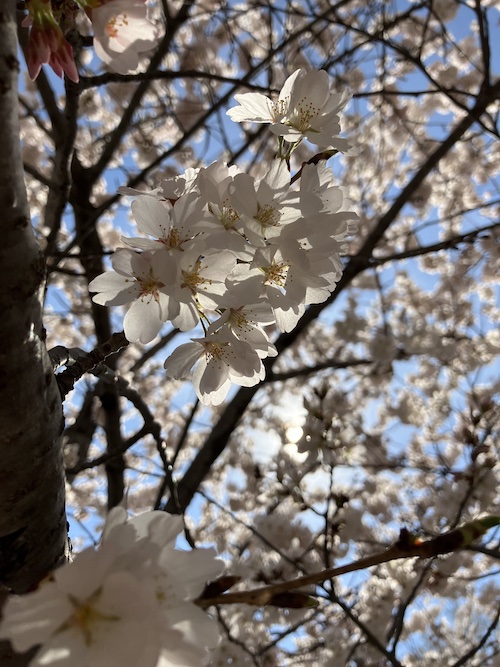
- And then, “I ask myself constantly….why do you return again and agin to Woolf? It is because the text made me!” And isn’t that a moment of joy for us all, to be in the presence of such a wonderful engagement with a text.
- The objective of the exercise is not to look for life balance, but to look for movement towards the things you love, those things that uniquely define and delight you, then tilt madly towards them.
- Oh, right. Duh. Public schools are basically the most complex kind of community there could possibly be–a crew of people from different racial, religious, and class backgrounds, who didn’t choose one another, coming together with pathetically limited resources to try to care for one of our most precious, insanity-inducing assets: our kids. Some eggs are going to get broken with that collective recipe.
- There are some things I just can’t enumerate, like the peanut butter and honey sandwiches, cheese sticks, and protein balls we ate on the road. Or the long stretches of beautiful or non-descript highways we traversed. The patches of wildflowers on the roadsides. The few scary traffic situations we endured, and frightening bridges we drove over. The laughs and the catching up about family and friends from way back. The discussions about childhood in which my sister and I just don’t remember things the same. The times I just wished we were there already.
- And I wondered to myself, when did my need for validation transition into a desire for affirmation? It was an aha moment; I felt like I had discovered something new.
- It’s probably ridiculous, how much I love an HB/2. It’s simple. And it’s forgiving. I can be most creative, and try and be wrong countless times- until something comes out right, when I’ve got this guy in my hand
- Okay, so there’s the obvious impracticality of spilling mouth wash all over your vintage Guatemalan textile, but really, who doesn’t love to floss over a bustle of fancy fabric?
- In summer we will swim in the bay that is hung with mist. Small boys love the shore for the starfish, the crabs under rocks, the anemones pulsing in the tidepools. Looking up from the water, I’ll remember the lilies in their damp moss, the decades of seeing them, how the sea rises and falls, rises, falls, generations of ravens in the trees, and the oyster shells on the side of the path.
- If you are a bird person, it’s hard to have a favourite bird, but if I was pressed, I would have to say that Dark-Eyed Juncos are among my favourites. See what I did there though? I didn’t commit to having a favourite, but I acknowledged that Juncos are one of my favourites. See? Hard.
- Despite the algorithm that can apparently now predict language — I couldn’t predict the way that my heart would leap when I heard a friend call his teen son sweetheart on the phone yesterday, or expect a machine to know the feel of her heart thumping against my palm while cuddling on the couch, Blake’s howling laughter in the background.
April 17, 2023
Birnam Wood, by Eleanor Catton
True confession time: I’ve never read Eleanor Catton’s Man Booker Prize-winning novel The Luminaries, and I likely never will. Reportedly, it’s very lengthy, set a long time ago, and all about a man staking his claim in a gold rush (yawn), and no doubt it’s extraordinary and brilliant, but each of these makes for three counts on my NOPE NOPE NOPE list, and there are so many other books in the world.
My interest in Catton’s latest Birnam Wood, however, was piqued by critic Lauren Leblanc’s enthusiasm for the project, which was also the reason I went to see Catton at the Toronto Public Library’s Bluma Salon event in early March, which was really fantastic, and I bought the book there. She kept talking about plot, and about how “character is action; we are what we do,” and I was intrigued, though I’ve got to say that even though this novel clocks in at only just over 400 pages, I picked it up thinking of a doorstop, and what have I gotten myself into? There was not a lot of white space. Will I be reading this novel for the next 900 years?
But reader, I sped through it in two days. This book! This book! Speaking of plot… Though it didn’t take off immediately. I was interested in the story and surprised to find that it was so much more intimate and immediate than I was expecting, deeply embedded in the experiences of characters ranging from the leader of the gardening collective, her loyal sidekick, a renegade citizen journalist, a pest-control mogul who has recently received a knighthood, his wife, and a reclusive American billionaire seeking refuge in middle of nowhere New Zealand for reasons that aren’t bound to be honourable. I thought this would be a more sprawling book, individual people at a distance, more a book in general than this one, which is so exactly, specific. Even though the paragraph-long sentences were hard to parse at first, so many clauses, and semi-colons. Like making one’s way through the weeds and the bramble, and then suddenly there I was at the heart of things and the novel was unputdownable.
“She was still looking for a villain. She was still trying, desperately—and uselessly—to find somebody more monstrous and despicable than her.”
Who is the villain of this story? Who is the hero? Such murky distinctions (if any are to be made) are what make Birnam Wood such a fascinating puzzle of a story. I loved it.
April 14, 2023
It’s All Happening

It’s all happening! Not just spring even (though spring is happening too—there is forsythia in bloom in my front garden!) but everything else, the weekends filling up like in old times. And I’m running two community events in the next three weeks, as well as supporting another one in June, and while I may have reached the “crying because I’m frustrated and no one will help me” and having periodical hissy fits stage in the organization process, in general I am doing okay, which is a big deal, because when I was having a really hard time with my mental health last year, I wasn’t sure I’d be able to take on these sorts of responsibilities again. I have a much harder time with stress these days, sometimes my anxiety turns on out of nowhere, and a year ago I was still was suffering so much, but since then I’ve rebuilt so much of my mental strength, and it feels really good. I’m proud of just how far I’ve come.
And something else good that happened to me last week was sitting down to write a little piece for our neighbourhood’s community gardeners e-newsletter. I’m at a moment in-between with my new novel nearly ready to go to print, and another novel that’s still in progress but I’m not stressing out too much about getting that next draft done, and I’ve taken a break from doing manuscript evaluations (though I’m returning to that delightful work next month!), which means that I’m temporarily between deadlines, as they say, and finally had a moment to devote to writing something for the Harbord Village Gardeners, which I’d been meaning to do for months now.
And it felt so great! To write and write and to get to the end, so richly satisfying. I’ve been writing my novel since 2015 and while getting it out there finally will be incredible, it’s still a long and complicated road to take, but this was different, and it had been so long since I sat down to write something like an essay (or a story). A creation I can (metaphorically) hold in my hand, and I was so pleased with myself, and pleased with the result. Looking forward to sharing it soon.
April 13, 2023
Diagnosing Minor Illness in Children, by Kerry Ryan
There is a line from Kerry Ryan’s first poetry collection THE SLEEPING LIFE that I’ve been thinking about for almost a decade and a half since I first read it, the line about the click of her partner’s glasses on the bedside table at the end of the day: “I wait for it all day.” And what remains just as true about Ryan’s vision all these years later as I picked up her latest DIAGNOSING MINOR ILLNESS IN CHILDREN (and read it in a single sitting) is the way she manages to capture those moments of every day existence so fleeting that most of us fail to notice until we see them articulated in a line of her poem, and declare, “Yes, THIS. The miracle of existence in a nutshell!”
Or, as I wrote in my blurb for the book: “Once again, Kerry Ryan’s singular vision and attention to perfect details works to render the ordinary absolutely extraordinary, the world shown anew through these poems about bodies, birth and motherhood, and the wildness of all of it.
Meeting Kerry Ryan at my husband’s colleague’s wedding fifteen years ago (he was marrying her sister!) was such a fortunate event for me, which I was not wholly expected when I was introduced to “another Kerry who likes books.” What are the odds that that other Kerry’s debut poetry collection would be so dazzling, speak so clearly to my soul? That she would end up contributing one of my favourite essays to the anthology The M Word: Conversations About Motherhood, “Confessions of a Dilly-Dallying Shilly-Shallier.” That she would introduce me to the wonderful Ariel Gordon! We’d also hang out in her home of Winnipeg in 2014 where lines from her second collection Vs. (about being a bookish non-sporty girl who takes up boxing) were displayed outside her gym.
So I’ve been waiting a long time for a new book by Kerry Ryan, and I’m thrilled that DIAGNOSING MINOR ILLNESS IN CHILDREN (with gorgeous cover art by Julie Morstad, who is my favourite!) is entirely worth the wait, Ryan turning her eye to parenthood and its excruciating wonderment, to losing a parent, to love and marriage in middle age, noticing everything, those perfect details. This is truly a book to savour.
April 12, 2023
The Burgess Boys
Running away on my own personal reading projects is perhaps my favourite fascination, the time I spent rereading Madeleine L’Engle’s Austin series in 2019 a case in point. (I talk about it all the time, like some people’s version of where they were when JFK was shot. Where were you when I was reading A Ring of Endless Light? Omg, remember when I was reading A Severed Wasp in New York City? Somebody ought to put up a monument!) And the best thing about these sprees, like most things I do, is that they’re never planned, they just have to happen, and when they do the moment is so absolutely perfect, serendipitous, infusing my life with light and meaning, spiritual, an epiphany. I am not being facetious or hyperbolic in the slightest.
And lately, it’s been the Lucy Barton books, which I’ve been rereading these last few months and wrote about here. These books not blowing my mind quite like the L’Engles did (“every single one of them words rang true and glowed burning coal/ pouring off of every page like it was was written in my soul…”) but rearranging my thinking in a more subtle way, a quieter way. How I’d dismissed them at first, and then going back to see what I’d been (dis)missing, and how exploring Elizabeth Strout’s books is a bit like being handed a key to a literary universe where the reader is omniscient, making connections the characters themselves don’t understand—though it seems like the inverse when one encounters the Lucy Barton books, it’s true, where the connections are elusive, and it’s hard to understand just how she (both Lucy and her author) got from there to here.
But I think that Strout’s 2013 novel The Burgess Boys might just be the bridge.
I first encountered Bob Burgess as a secondary character in Lucy By the Sea, and had the same response to him that Lucy did, which was that I loved Bob Burgess. And so, when I realized that Bob Burgess had his own book (albeit one shared eponymously with his asshole brother Jim) I placed a library hold immediately. (The best thing about becoming obsessed with the Elizabeth Strout books in 2023 is that most of the library holds come in pretty quickly…)
And so Bob Burgess came away with me last weekend, and the coals were glowing again. Oh my gosh, I loved this novel.
The most remarkable thing I can say about it is that I knew its big twist, that Bob had revealed his story to Lucy during their time in Maine, and still the story was not spoiled in the slightest. The other thing I particularly loved was that I got to see Bob (Oh, Bobby!) meeting his second wife for the very first time, and neither of them had any idea!
The Burgess Boys is the first conventionally-structured Strout novel I’ve ever read (the Lucy Barton books are a study in interiority, while her Olive Kitteridge books are the same but with…exteriority [is that a thing?]). And The Burgess Boys really is the bridge between the two, all the scenes of the Lucy Barton books just planted in its soil. Parts of the novel are narrated by Bob’s ex-wife Pam (whom we’ve also met in the Lucy Barton books) and her feelings about her first husband are a quiet preview of what Lucy will feel for William. (There is also, indeed, a line from her perspective: “Oh, Bobby!”
And the scenes in which Bob is looking out the window in his New York City apartment, wondering at all those different lives going on, lighted windows offering just the smallest glimpses of other people’s private worlds—a preoccupation of the Olive and the Lucy books alike. The mystery of other people’s experiences and understandings.
The Burgess Boys is also deeply concerned with the fabric of American society, as the Lucy Barton books are against the backdrop of the 45th President, Covid lockdowns, and the George Floyd/Black Lives Matter protests in 2020. But so unbelievably presciently considering how much I hadn’t seen coming in 2013. The novel is set around 2007, the shadow of the Iraq War and torture in prison camps still very present, and a major part of the plot involves an act of violence on the property of a mosque in small town Maine, where the Burgess boys hail from, where the locals in this dying town are decrying the arrival of Somali immigrants whose culture seems to represent a threat to their way of life. As with the Lucy Barton books, as with, well, everything, the challenge: how do we learn to live with difference? How do we learn to live with each other? Strout refusing to look away from class, either, and how poverty can come to define one’s experience. The ways in which all of our experiences make us either harder or softer. How it’s never not complicated.
